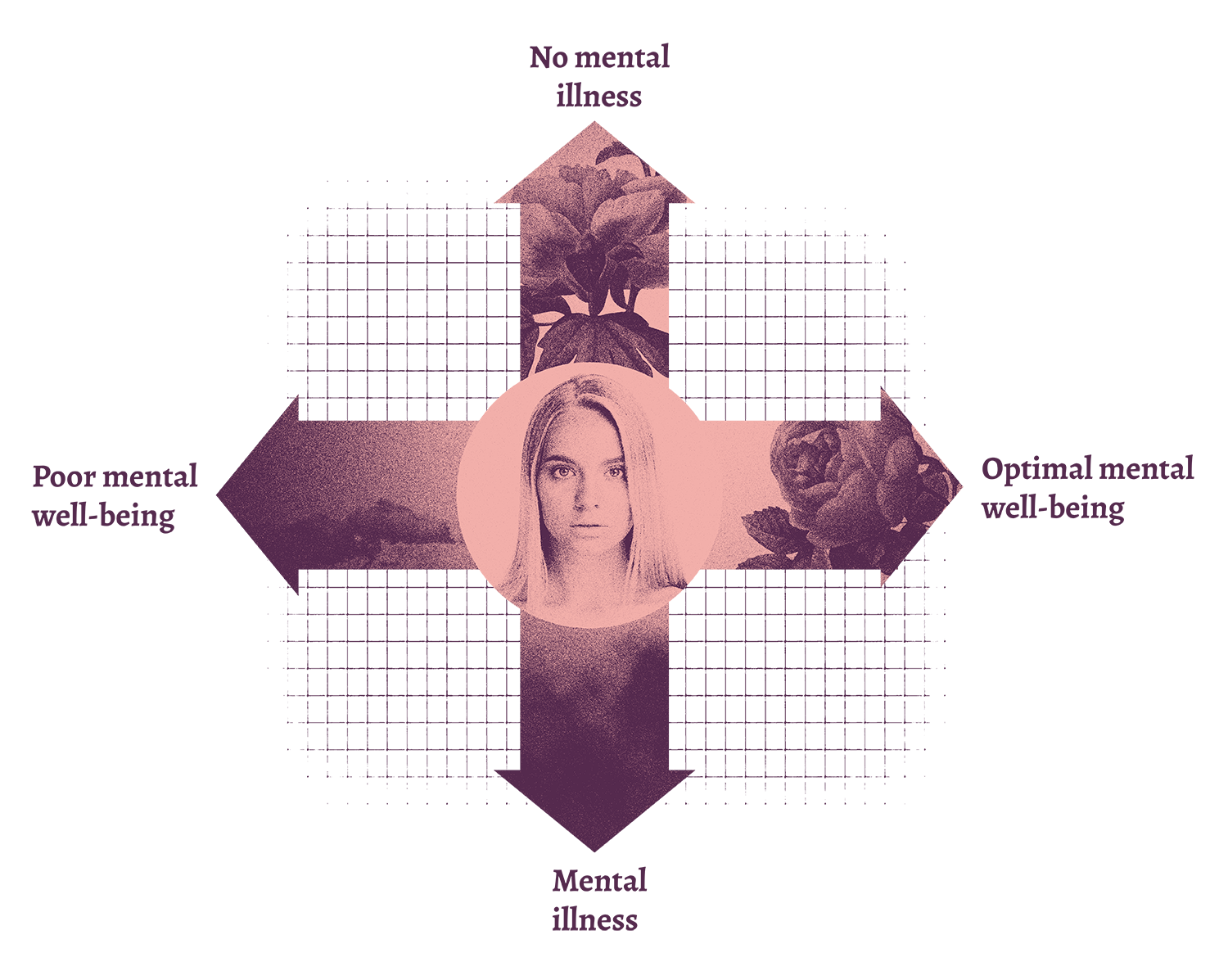Understanding mental health
Mental well-being is both feeling and functioning well. The World Health Organization1 describes mental well-being as a state in which the individual realizes his or her own abilities, can cope with the normal stresses of life, can work productively and fruitfully, and is able to make a contribution to his or her community.
Through recognizing, accessing and using appropriate forms of care and treatment respective to mental health status optimal mental well-being is achievable for all, whether or not they have a mental illness.
The key to mental well-being is not the avoidance of stress, negative feelings and problems, but rather being equipped to cope with life stressors and situations as they arise.

People’s mental health and wellbeing can be challenged for example by short-term reactions to difficult situations such as school pressures, work related stress, relationship conflicts or grieving the loss of a loved one.
Almost every person will experience a few of these conditions in their lifetime, but everyone processes them in different ways and for different lengths of time. Often, by dealing with everyday stress, people find strategies that work for them and can be used in other similar situations in the future.
Compass of mental health
Mental health is more than just the opposit of mental illness. We can imagine mental health as an area on the map divided by two axes. Four basic areas and four directions shows the dynamic of mental health and its different forms:

- The Northeast Area marks the area where a person is located when he has no diagnosed mental illness and at the same time feels and functions well.
- The Southeast Area marks the area where a person who has been diagnosed with a mental illness is located, but because he is successfully treated and possibly also taking medication, he feels and functions well. It can be, for example, a person with a psychotic illness who is in remission.
- The Southwest Area marks the area where a person who has been diagnosed with a mental illness and at the same time does not feel or function well. This can be, for example, a person in the acute phase of a psychotic illness, or a person in mania who might feel great but does not function well.
- The Northwest Area is an area where there is a person who has not been diagnosed with a mental illness and at the same time does not feel mentally okay or is not functioning well. This can be a person who has lost his job or is coping with other life complications; but it can also be a person in the early stages of a mental illness.
No matter where you are according to the compass, in the context of mental health it is possible to head east in all circumstances. That is, to optimal well-being.
Many people around the world have moved from a place where they were "mentally at the bottom" and even trying to hurt themselves. However, today they live a happy and fulfilling life, feel and function well.
Other people had to work on themselves to change their experiences, feels, and thoughts to improve their quality of life.
You can do it, too. You may be surprised at how big changes sometimes can bring even quite small things - such as following the rules of healthy sleep.
